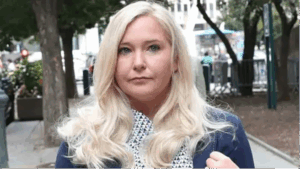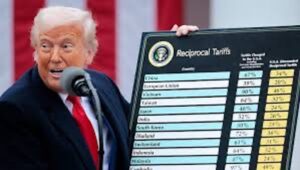Why the Massive Blackout in Europe?

April 22 was a day to celebrate for Spain’s greenies. The national grid that day was, for the first time, 100% fueled by renewable energy. For 24 hours, the country was able to have all its electrified machines running on wind and solar power.
Then, on April 28, the lights went out across the country.
That evening, K asked me if I had heard about it. I said that I had, and that I’d heard that parts of France and Portugal were also affected – that France had fixed its problem quickly, but it might be days or weeks until power could be restored to Spain and Portugal.
I knew a bit more, though. I knew that, according to investigative journalist Michael Shellenberger, the blackout, one of Europe’s largest peacetime outages, wasn’t random or unforeseeable, as some in the media were saying, but was the inevitable outcome of politically driven energy policies prioritizing ideology over-engineering realities.
I also knew that if I said that to K, she would perceive it as another conspiracy theory, and so I waited a day before sending her this.
35 and Still Writing for 15-Year-Olds

On the one hand, I’m a big fan of Taylor Swift. Not so much the performer. (I’m not sufficiently familiar with her “discography.”) But the businessperson – i.e., product developer, marketing strategist, and promoter – as I explained in the May 3, 2024 issue.
On the other hand, I remember hearing Ben Shapiro describe her as “a 34-year-old woman singing about teenage girl problems.” That stuck with me, so when I came across this essay that included lines from her songs, I was interested.
Here’s a sampling:
From “Fifteen”: “Cause when you’re fifteen and somebody tells you they love you, you’re gonna believe them.”
From “Dear John”: “But I took your matches before fire could catch me, so don’t look now… I’m shining like fireworks over your sad empty town.”
From “All Too Well”: “And you call me up again just to break me like a promise – so casually cruel in the name of being honest.”
So, yes. These are teenage sentiments. But what’s wrong with that? Isn’t that where the gold is?
War Is Hell: Three Conversations

1. He said his view of the Israeli-Hamas war was “more nuanced” than mine.
By that he meant that he believes Israel has the right to defend itself, but he also thinks that “the way they are doing it” is akin to ethnic cleansing. I asked him what would happen if Hamas surrendered tomorrow. He agreed that the war would end and that would bring a stop to Palestinian deaths. “And then what would happen if Israel laid down its arms?” I asked. He said he didn’t know. “You should know,” I said. “They have done so four or five times already and each time the Arabs have restocked their arms and initiated another attack.”
2. She said she was worried about the “growing antisemitism” in the United States.
“Before, I knew where it was coming from,” she said, “the KKK and other male White supremacists. But now it’s coming from the left as well.” I asked her if she knew why that was. She said she didn’t. I asked her if she was familiar with the concept of intersectionality. She said, “Am I familiar with it? I teach it!” “Well,” I said, “maybe you should look at the charts again. The Jews are right up there at the top along with the WASPs.” She looked as if she had never considered that before.
3. He said that he supported the right of all people to defend themselves, but “There must be some proportionality.”
“With this war, we are talking about innocent civilians,” he said. I asked him if he knew how many innocent German civilians were killed in WWII. He didn’t know. I admitted I didn’t know myself. “It was a lot,” I said. And we both laughed a little. That evening, I looked it up. Estimates on the number of those who died from the bombing range from 350,000 to 500,000. Estimates on the number of those who died due to the flight and expulsion of Germans, Soviet war crimes, and the forced labor of Germans in the Soviet Union range from 500,000 to over 2 million.
Did you Hear? She “Committed Suicide”?

Did you hear about Virginia Giuffre? She’s the woman, pictured above, who said that, as a teenager, she slept with Prince Andrew on Jeffrey Epstein’s Island.
Well, she just committed suicide. At least that was the finding of the local police in Neergabby, Australia, where she was found.
It is another chapter in a book that will one day be written about the Epstein scandal – if the Trump administration, as promised, will release all the evidence the DOJ has about him.
Here’s the story as it’s been reported so far:
Just three weeks ago, Giuffre claimed she had been in a car accident and had only days to live – describing a bizarre crash with a school bus going 68 miles per hour. Strangely, Australian police said the accident was “minor,” and no serious injuries were recorded. But in Giuffre’s final Instagram post, she included photos of the crash, and they looked very serious.
Also, in 2019, Giuffre made it very clear she was NOT suicidal, even stating it to her therapist and doctor in writing. She warned that “too many evil people” wanted to silence her. Now those warnings feel chillingly prophetic.
So, what is going on? What really happened? Is this another unsolved suicide/murder?
They Don’t Like Trump’s Tariffs

On Monday afternoon, from 2:30 to 4:00, I join a discussion group made up of writers, economists, professors, and other ne’er-do-wells who have a bias towards Libertarianism, free-market Capitalism, and (in one case or two) anarchy. It’s something I look forward to.
This last Monday, the meeting began with one of the members, a professor of economics, giving a presentation on Trump’s foreign policy and his tariffs.
The presenter believes, as Milton Friedman and the Austrian economists believed, that tariffs are essentially a tax that neither helps the country imposing them nor helps anyone else involved in that trading.
In Trump’s first term, he pointed out, his tariffs reduced the growth spurred by his other policies. Other countries retaliated, hitting US producers of everything from apples to whiskey. The government paid farmers billions in compensation. Harley-Davidson had to shift production for its overseas customers to Thailand to stay competitive. Furthermore, there was no great boom in manufacturing employment. More jobs involve using steel rather than making it, and one study said that higher steel prices led to 75,000 lost manufacturing jobs. Consumers paid more for many products as companies passed on tariff costs.
In terms of foreign policy, the presenter was also critical of The Donald. He thought he was getting us too deeply involved in the Russia/Ukraine conflict as well as the Israeli/Hamas War.
Most of the rest of the group agreed with him. And yet most of them, like him, had voted for Trump as “the lesser of two evils.”
I didn’t say anything. Partly because I’m still new to the club and get the sense that I need to be around more before I can chime in. But I was also reluctant to say what I thought because I am hoping that Trump can pull off what I think he’s trying to – because if he can, it could be very good for our country.
I’ll be talking more about that…
A Thank You Is Required – and Still Appreciated

Last week, I received this very nice note from a young woman who received one of the tuition scholarships we award each year at FunLimón (my family’s non-profit in Nicaragua).
She said: “Thank you and your family for all the support with my tuition this year, you and FunLimón helped me get through this hard year and I was able to finish my 4th year of medical school. Please find my grades for both semesters attached….”
At FunLimón, we require recipients of scholarships (and most other benefits) to give themselves the respect of doing three things when they receive a scholarship from us:
1. Maintain a B+ average.
2. Write a formal thank-you note.
3. “Pay forward” their gift after they graduate by doing something for younger students who have the ambition of going to college.
Since the thank-you note is required, one might argue that the appreciation expressed in this young woman’s letter isn’t real. But I know many of these students personally, and I know that, unlike so many recipients of largesse in every country, they are truly grateful.
